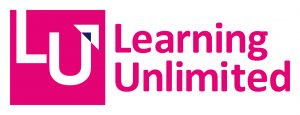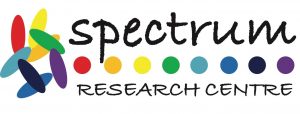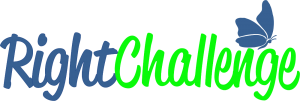Home | About
About the Project
Project Overview
One of the main factors hindering possible resolutions of family debt is the lack of key financial literacy skills that currently pertain in most low-skilled communities where debt burdens remain high.
For many individuals the support agencies that have been established come with a stigma, stress and embarrassment while many of the effected adults don’t have the self-confidence to contact their financial institution and begin the process of restructuring or reconciling their indebtedness. Thus, building financial literacy in a non-threatening environment can be the first step on the road to recovery.
Adult and community education settings are the perfect vehicle to begin the literacy raising process through a family learning approach. Effective family learning requires a bottom-up approach in that family are considered in the design of any proposed learning materials.
The overall aim of the project is to produce new pedagogic practices that impact adult education provision by supporting family learning through new digital learning tools.
Project aim
The aim of the project is to produce new pedagogic practices that impact adult education provision by supporting family learning through new digital learning tools.

Specific Objectives
- Develop, pilot and deliver a quality CPD programme for adult educators, practitioners and relevant stakeholders, through a training methodology which can be customized and contextualised to local needs.
- Enable adult educators to embed tools for financial literacy within their standard teaching and engagements with families to ensure family learning opportunities are responsive to current needs, challenges and opportunities of the target group.
- Increase the capacity of educators to develop and include strengths-based, participatory, learner-led approaches in their teaching.
- Develop an accessible online platform to promote and disseminate effective and innovative approaches to financial literacy teaching & family learning for wider use across the EU.
- The importance of financial literacy skills to support marginalized citizens in taking an active part in society.
Methodology
The project methodology is based on the ‘triple alliance’ of these:
- the objectives of family learning and skills development for the delivery of high quality and innovative scientific, research and digital products which reflect EU and national policies and target the specific context of adult education;
- implementation of all the necessary activities, and
- the completion of all the planned results, including those relating to foundation, development, sustainability and dissemination.
Partners
 Learning Unlimited is a not for profit social enterprise that specialises in adult and family learning, ESOL and integration, literacy, numeracy and teacher education.
Learning Unlimited is a not for profit social enterprise that specialises in adult and family learning, ESOL and integration, literacy, numeracy and teacher education.
We believe in learning as empowerment and engage adults and families in local communities who face a wide range of issues and barriers to social inclusion. We also train the volunteers and professionals who work with and support them.
We lead on local, national and international projects, develop and publish books and resources, and do a wide variety of consultancy work.
 Spectrum Research Centre (SRC) is a not-for-profit research centre established to create a space where research and educational findings can be validated through local actions focused on community impact. We support young academics to trial and test their research hypotheses in ‘living laboratory’ environments. As the company grows, we are committed to providing researchers, trainers, and educationalists with opportunities to give their work and practice a European perspective. The main policy focus areas for SRC are:
Spectrum Research Centre (SRC) is a not-for-profit research centre established to create a space where research and educational findings can be validated through local actions focused on community impact. We support young academics to trial and test their research hypotheses in ‘living laboratory’ environments. As the company grows, we are committed to providing researchers, trainers, and educationalists with opportunities to give their work and practice a European perspective. The main policy focus areas for SRC are:
- Social Policy – integration of marginalized groups; unconscious bias and its impact on migrant integration; social media and xenophobia.
- Environmental Policy – circular economy and habitat protection; carbon neutral tourism; business modelling for circular economies; comedy for climate change.
- Education Policy – the threat of remote education to university research; serious games for addressing serious issues; cross-sector funding streams for education, gamification as an engagement strategy for digital natives.
SRC is also active in the wider community and due to the expertise in local development within the company it provides consultancy services to a wide range of organizations right across the economic landscape.
 Rightchallenge is a non-governmental organisation which aims to promote education and training as a means of social inclusion. We believe that education must focus on the holistic development of all people, in order to prepare them to participate in all dimensions of society, such as family, work and leisure. So, as an organisation actively engaged with the community, we provide consultancy services and curriculum design in the field of adult education and community development, and support communities at risk of social exclusion with volunteering opportunities and socio-educational programmes aiming to improve digital and media literacy skills.
Rightchallenge is a non-governmental organisation which aims to promote education and training as a means of social inclusion. We believe that education must focus on the holistic development of all people, in order to prepare them to participate in all dimensions of society, such as family, work and leisure. So, as an organisation actively engaged with the community, we provide consultancy services and curriculum design in the field of adult education and community development, and support communities at risk of social exclusion with volunteering opportunities and socio-educational programmes aiming to improve digital and media literacy skills.
 INNOVADE is a social innovation organisation with extensive expertise in designing and implementing projects and solutions in diverse settings around the globe. The team has decades of expertise in implementing over 100 projects in more than 30 countries. Expertise includes Adult Education, Vocational Training, Innovation, Social Entrepreneurship, Capacity building and Information and Communications Technology. Its goal is to assist stakeholders in defining and attaining their Strategic Goals and achieving their operational objectives by providing an exceptional level of expert support. INNOVADE works with organisations to help them streamline technological advancements and productivity tools into their processes to ensure that they improve performance, increase productivity and profitability.
INNOVADE is a social innovation organisation with extensive expertise in designing and implementing projects and solutions in diverse settings around the globe. The team has decades of expertise in implementing over 100 projects in more than 30 countries. Expertise includes Adult Education, Vocational Training, Innovation, Social Entrepreneurship, Capacity building and Information and Communications Technology. Its goal is to assist stakeholders in defining and attaining their Strategic Goals and achieving their operational objectives by providing an exceptional level of expert support. INNOVADE works with organisations to help them streamline technological advancements and productivity tools into their processes to ensure that they improve performance, increase productivity and profitability.
 Symplexis is a Greek non-for-profit organization that strives to ensure equal opportunities for all through actions and measures that build skills, empower and promote active engagement and participation focusing on the most vulnerable categories of the population and particularly those with fewer opportunities. Symplexis’ mission is to elevate social cohesion through integrated actions and project-based activities that aim at promoting the inclusion of disadvantaged groups at risk of marginalization and exclusion, while promoting and protecting the rights of various types of population groups that face discrimination focusing on the empowerment and support of victims, awareness raising and information sharing at all level.
Symplexis is a Greek non-for-profit organization that strives to ensure equal opportunities for all through actions and measures that build skills, empower and promote active engagement and participation focusing on the most vulnerable categories of the population and particularly those with fewer opportunities. Symplexis’ mission is to elevate social cohesion through integrated actions and project-based activities that aim at promoting the inclusion of disadvantaged groups at risk of marginalization and exclusion, while promoting and protecting the rights of various types of population groups that face discrimination focusing on the empowerment and support of victims, awareness raising and information sharing at all level.
 Co&So is a consortium located in Florence which includes 40 cooperatives working in the educational, social and cultural field. Co&So has 31 employees who provide services to the associated, the main services are: administration, monitoring the calls and as a consequence to submit calls most on public procurement, offering European opportunities in order to promote innovation in the cooperatives in terms of improving employees’ competences and services, quality certification, communication. All together the staff working in the associated cooperatives is 3400 professionals. In Co&so there is a special office just working on European funding with very skilled staff who has more than 10 years of experience.
Co&So is a consortium located in Florence which includes 40 cooperatives working in the educational, social and cultural field. Co&So has 31 employees who provide services to the associated, the main services are: administration, monitoring the calls and as a consequence to submit calls most on public procurement, offering European opportunities in order to promote innovation in the cooperatives in terms of improving employees’ competences and services, quality certification, communication. All together the staff working in the associated cooperatives is 3400 professionals. In Co&so there is a special office just working on European funding with very skilled staff who has more than 10 years of experience.
Six of Co&So’s cooperatives work directly with the target group of the project and manage educational services and projects for children and their families. These cooperatives work in the area of Florence, Lucca, Grosseto, Prato and Arezzo and manage around 185 services from nursery to primary schools, some on behalf of the Public Authorities, some privately, there are about 650 qualified working in this sector and the number of beneficiaries is 8900.

